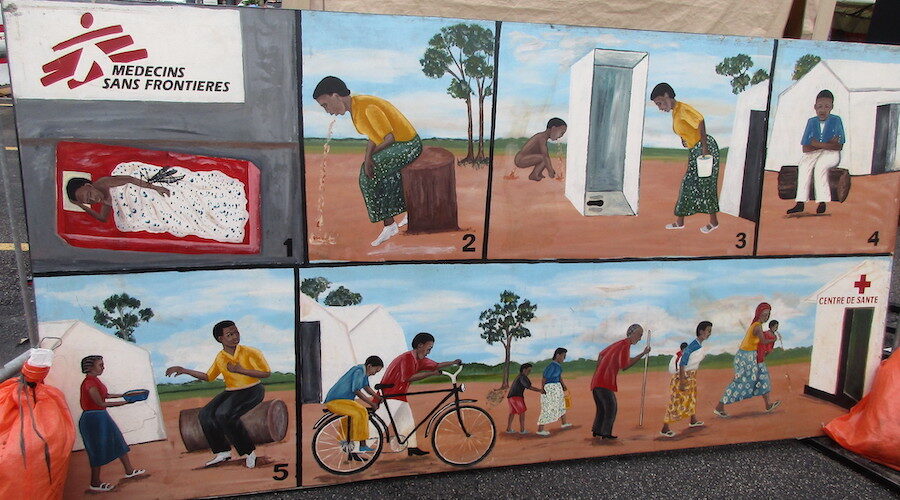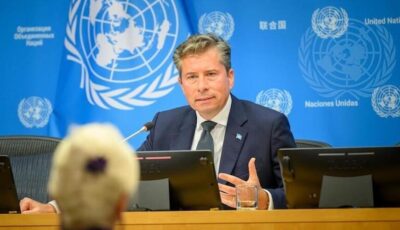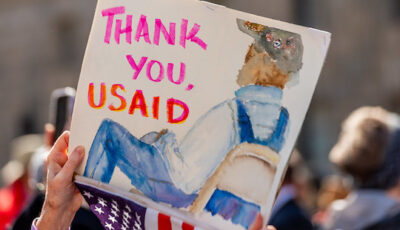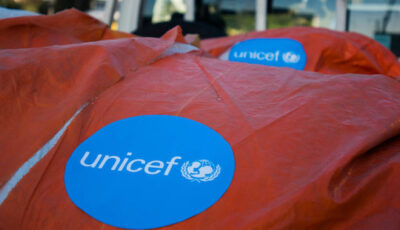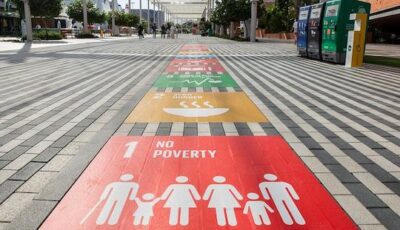Global efforts to fight three of the world’s most harmful and widespread infectious diseases—AIDS, tuberculosis, and malaria—are now threatened by dramatic cuts to global health financing. Reported by Médecins Sans Frontières.
In January, the United States—previously the largest funder of global health programs—announced a suspension and review of all international aid.
Since then, the US and other donor countries have yet to fulfill their pledges to the Global Fund to Fight AIDS, Tuberculosis and Malaria for 2023 to 2025, causing unprecedented cuts to programs in more than 120 countries. The US has yet to announce a pledge for the Global Fund’s next three-year funding cycle, which is due in November.
The Global Fund has long played a fundamental role in the fight against HIV, TB and malaria in countries with fragile health systems. Across Africa, Asia, Latin America and beyond, its grants help purchase medications and diagnostic tests, pay health workers and sustain disease prevention efforts. Unless more substantial pledges are made in the coming weeks and months, in line with widely acknowledged funding needs, there could be huge setbacks in decades-long efforts to reduce illnesses and deaths.
Doctors Without Borders/Médecins Sans Frontières (MSF) provides medical care to tens of thousands of patients with HIV or TB and more than 3 million people with malaria each year. While our work is not financed by the Global Fund, we are deeply concerned about the impact of weakening support for its global health programs. Hundreds of community-based health organizations supported by the Global Fund are currently being forced to scale back their plans amid financial uncertainty and potentially even more devastating cuts.
The consequences would be greater illness and death. We are already witnessing this as other vital global health funders withdraw from places we work.
The idea of “domestic resource mobilization”—that global health funding can be replaced by national governments—is not viable in many places where we witness people falling ill and dying.
In Honduras, for example, sudden cuts by the U.S. President’s Emergency Plan for AIDS Relief (PEPFAR) halted many HIV prevention and patient care programs earlier this year. Patients lost access to pre-exposure prophylaxis (PrEP) medications overnight, eliminating a key tool in preventing the spread of HIV. People who need treatment for HIV were lost to follow-up after health workers lost their jobs. Consequently, there is now an increase in HIV positive patients returning to health centers with very advanced opportunistic infections.
The reality of infectious diseases is that when left unchecked, they worsen and they spread. Cutting funding can undermine years of hard-won progress. But sustaining successful approaches and supporting promising innovations can save lives today and tomorrow. Millions of people are now able to live healthily with HIV thanks to viral load suppression, yet HIV still causes an estimated 1.3 million new infections and more than 600,000 deaths per year. Experience has shown that community-based organizations, such as those supported by the Global Fund, are highly effective at delivering services for patients and improving prevention and treatment outcomes. They are making progress that must not be reversed.
Funding cuts have come even as medical advances show great potential. New, injectable pre-exposure prophylaxis (PrEP) can prevent HIV acquisition and protect people at high risk, lowering transmission more broadly. For example in Malawi, sex workers are at extremely high risk of HIV infection, with a prevalence of nearly 60 percent. Our teams are currently working alongside organizations for sex workers to provide injectable PrEP in two towns, yet national scale-up efforts have stalled due to reduced US funding.
Tuberculosis causes an estimated 1.5 million deaths per year, yet research and experience now show the potential for its elimination. Fewer cases are going undetected thanks in part to efforts by the Global Fund and the UN High-Level Meeting on Tuberculosis. We have better diagnostic tools, shorter treatment regimens, and improved prevention and treatment outcomes for people with latent TB infections and different bacterial strains—all of which require sustained funding to implement at scale. In Sudan for example, although TB drugs are available, the TB testing GeneXpert machine sits unused, with no one trained to operate it. Worryingly, research on drug-resistant TB that both MSF and the Global Fund were supporting in Belarus was recently halted due to the unfulfilled US Global Fund pledge.
Malaria is the leading cause of death among children under 5 in countries where it is endemic. Distributing insecticide-treated bed nets, preemptively administering malaria medications to young children (called season malaria chemoprevention), and rolling out new malaria vaccines can all reduce infections and save lives.
Unless more substantial pledges are made in the coming weeks and months, in line with widely acknowledged funding needs, there could be huge setbacks in decades-long efforts to reduce illnesses and deaths.
The current gaps in malaria prevention, diagnosis, and treatment have an immense human toll. Our medical teams in Central African Republic, South Sudan and the Democratic Republic of Congo regularly witness how rapid diagnostic tests and medications for treatment are often unavailable, and health facilities are understaffed, leading to severe and deadly consequences for often very young patients. A sustained investment by the Global Fund is urgently needed.
The idea of “domestic resource mobilization”—that global health funding can be replaced by national governments—is not viable in many places where we witness people falling ill and dying. As we found in a recent report, “Deadly Gaps,” the cost burden inevitably falls on patients who cannot afford care.
Fighting HIV, tuberculosis, and malaria is a global, generational challenge, and it is far from over.
MSF urges the United States to maintain its critical support to the Global Fund on behalf of heavily affected communities worldwide.
Original source: Médecins Sans Frontières
Image credit: Some rights reserved by Amy the Nurse, flickr creative commons
